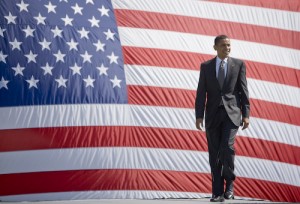The announcement that US Vice President Joe Biden would be visiting Madrid on May 7-8 as part of a short European tour was a welcome piece of news for the Spanish government and further proof of the positive relationship it enjoys with the current administration in Washington.
The visit was scheduled to follow the meeting between Spanish Foreign Minister Miguel Ángel Moratinos and US Secretary of State Hillary Clinton in Washington the previous week. Just three months earlier, Prime Minister José Luis Rodríguez Zapatero was in the US capital himself, attending the National Prayer Breakfast as President Barack Obama’s guest, an event that followed a meeting between the two men at the White House in October.

Just two years ago, this kind of fluidity in Spain’s relationship with the United States was virtually unthinkable. George W. Bush, who enjoyed the zealous backing of former Prime Minister José María Aznar, froze Zapatero out of the White House after he withdrew Spanish troops from Iraq in 2004. The Socialist Zapatero was equally unenthusiastic about making friends with his neo-conservative counterpart.
So the arrival of Obama has marked a clear improvement, highlighted by both the flurry of top-level diplomatic and political cooperation and the genuine rapport between Zapatero and the US leader.
And yet, the Spanish prime minister has to feel somewhat let down by how this relationship has so far played out.
On the official agenda for Biden’s trip is the discussion of Spain’s tenure of the EU rotating presidency, including the exchange of banking data between the EU and the United States to help combat terrorism, and other “ongoing cooperation to address global challenges.” That ongoing cooperation has so far been mainly a one-way street. Madrid has made some major gestures that underline its willingness to support the White House, such as boosting the number of Spanish troops in Afghanistan to around 1,600. In addition, Spain has already taken in two inmates from the Guantánamo prison camp, with another three due to come. Zapatero has hardly disguised his determination to enjoy Obama’s goodwill, as shown by his attendance at the Prayer Breakfast in February. It could have been an awkward occasion for Zapatero, who doesn’t speak English and was the only person present that TV cameras showed not bowing his head in prayer, but he acquitted himself reasonably well.
The only obvious setback to this recent building of ties was when Spain announced the withdrawal of its troops from Kosovo last spring, apparently without coordinating fully with its NATO partners (and even with some of its own officials, according to some reports). Despite its obvious annoyance at the time, the Obama administration was willing to put that episode behind it.
The general impression given is that Zapatero and his administration have been doing a good deal of legwork to ensure Madrid-Washington ties are tight. But the payback for the Spanish efforts looks fairly thin. When Obama cancelled his attendance at a planned EU-US summit to be hosted by the European term president in Madrid, he effectively scuppered the whole event. His reason was a busy agenda, but nonetheless, it showed the world that the American president’s priority was not Europe. And it certainly wasn’t Spain, which was most embarrassed by the snub.
In the corner of Obama’s eye
When the FBI upset Spanish United Left (IU) politician Gaspar Llamazares in January, by altering his photograph to create a theoretical image of Osama Bin Laden, in a way it simply offered a rather comic parallel of the problem. The explanation the FBI offered was that it did not know who Llamazares was when using his image. Similarly, Spain – and Europe in general – remain merely in the corner of Washington’s eye rather than the object of its gaze as it focuses on other parts of the world.
Latin America is one area where the two leaders could find common ground, given their shared ideological preference for political moderation in the region – indeed Spain and the United States both contributed to the eventual resolution of the Honduras stand-off. Six months ago, encouraging the Castro brothers to open up Cuba was another obvious mutual aim, but with the recent wave of hunger strikes, protests and government repression on the island, that door has closed for now.
Right now, both Zapatero and Obama have more than enough domestic challenges on their plates to be overly worried about this kind of strategic alliance. The US leader is attempting to oversee an economic recovery and ensure success in Afghanistan, among other issues. Zapatero is trying to tackle an increasingly unwieldy economic crisis.
Nonetheless, Obama is scheduled to attend a NATO summit in Lisbon in November. A one-hour flight to Madrid to meet with Zapatero would make an extremely positive impression on an ally who must be just starting to wonder whether all the effort is worth it.
Leave a Reply
You must be logged in to post a comment.